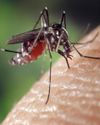
The “boom sprayer” is a hybrid between a tractor and an autobot from the Transformers; its has two 20-feet booms that spread out like outstretched wings. On them are equally spaced nozzles that spray bio-decomposers on the freshly harvested rice field where about 700 of these machines will be at work across 5 lakh acres in Punjab and Haryana. The decomposers are a powder (earlier introduced as capsules) mixed in water meant to accelerate the process of turning rice stubble into compost. Untreated rice straw takes 4-8 weeks to disintegrate which is too long for the average farmer to wait to be able to sow the winter wheat crop. The other option is to employ farm labour, who will cut the stalk and pile it into bundles, but that's expensive and unaffordable for more than 95% of the farmers. Here, by not alighting the fields, carbon as well as essential soil micronutrients will be retained. After spraying, the soil needs to be turned over and irrigated. When done correctly — spraying, turning the soil over and irrigating it for four days. As per the company claim, with the boom sprayer, an acre can be sprayed in 7 minutes whereas manually it takes half a day.
Denne historien er fra November - December 2021-utgaven av Scientific India.
Start din 7-dagers gratis prøveperiode på Magzter GOLD for å få tilgang til tusenvis av utvalgte premiumhistorier og 9000+ magasiner og aviser.
Allerede abonnent ? Logg på
Denne historien er fra November - December 2021-utgaven av Scientific India.
Start din 7-dagers gratis prøveperiode på Magzter GOLD for å få tilgang til tusenvis av utvalgte premiumhistorier og 9000+ magasiner og aviser.
Allerede abonnent? Logg på

An insight into Chandipura virus in India
Recently lot of news regarding disease due to Chandipura virus has emerged in various newspapers/magazines. After reading the reports published it seems that thing is still brewing in the natures nest and it could affect mankind.

Why elephants never forget?
An elephant has a very large brain for its size and the 'temporal lobe' region responsible for memory is more developed with a greater number of folds - this results in powerful abilities to 'download' important survival data such as where to find food and water, and who is friend or foe.

Use of Algae for Wastewater Treatment Containing Heavy Metals
Wastewater treatment is a critical environmental issue particularly when it comes to the removal of heavy metals.

Nano priming Seeds: A Small Innovation Sparkling Big Advances in Germination
Nanopriming is an emerging agricultural technique where the seeds are treated with nanoparticles to improve their germination, growth, and overall performance.

Nobel Laureates in Physics 2024: Revolutionizing AlThe Physics Foundations Behind Machine Learning
This year's two Nobel Laureates in Physics have used tools from physics to develop methods that are the foundation of today's powerful machine learning.

Revolutionizing Biology: The 2024 Nobel Prize in Chemistry Celebrates Breakthroughs in Protein Design and Structure Prediction
The Nobel Prize in Chemistry 2024 is about proteins, life's ingenious chemical tools.

New findings on animal viruses with potential to infect humans
Scientists investigating animal viruses with potential to infect humans have identified a critical protein that could enable spillover of a family of organisms called arteriviruses.

Father-Daughter Team Decodes Mars' Alien Signal
There is no definitive answer to whether aliens exist, but there is a lot of work being done to find out:

Krishi Vigyan Kendras: Working for Farmer's Welfare
Krishi Vigyan Kendras (Farm Science Centres) are the District level institution serving as an agriculture knowledge resource & capacity development centre which plays indispensable role in front line extension regarding agriculture system in scientific way.

Sixth generation Computer: The future computing technology
We are in a transition towards a digital world, where everything will be dealt with in digital format.